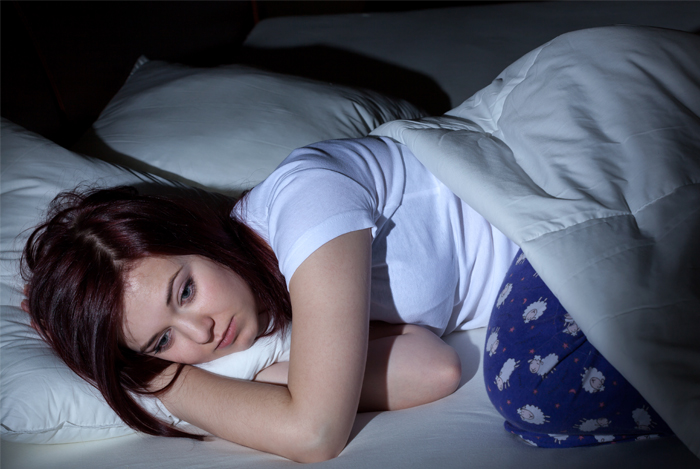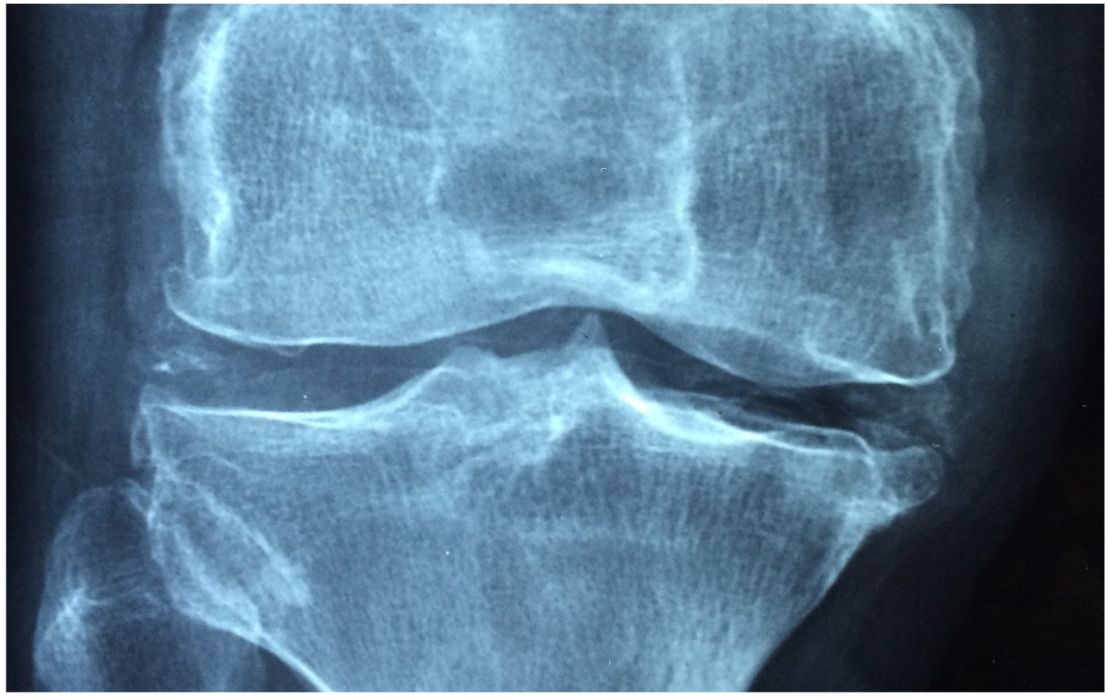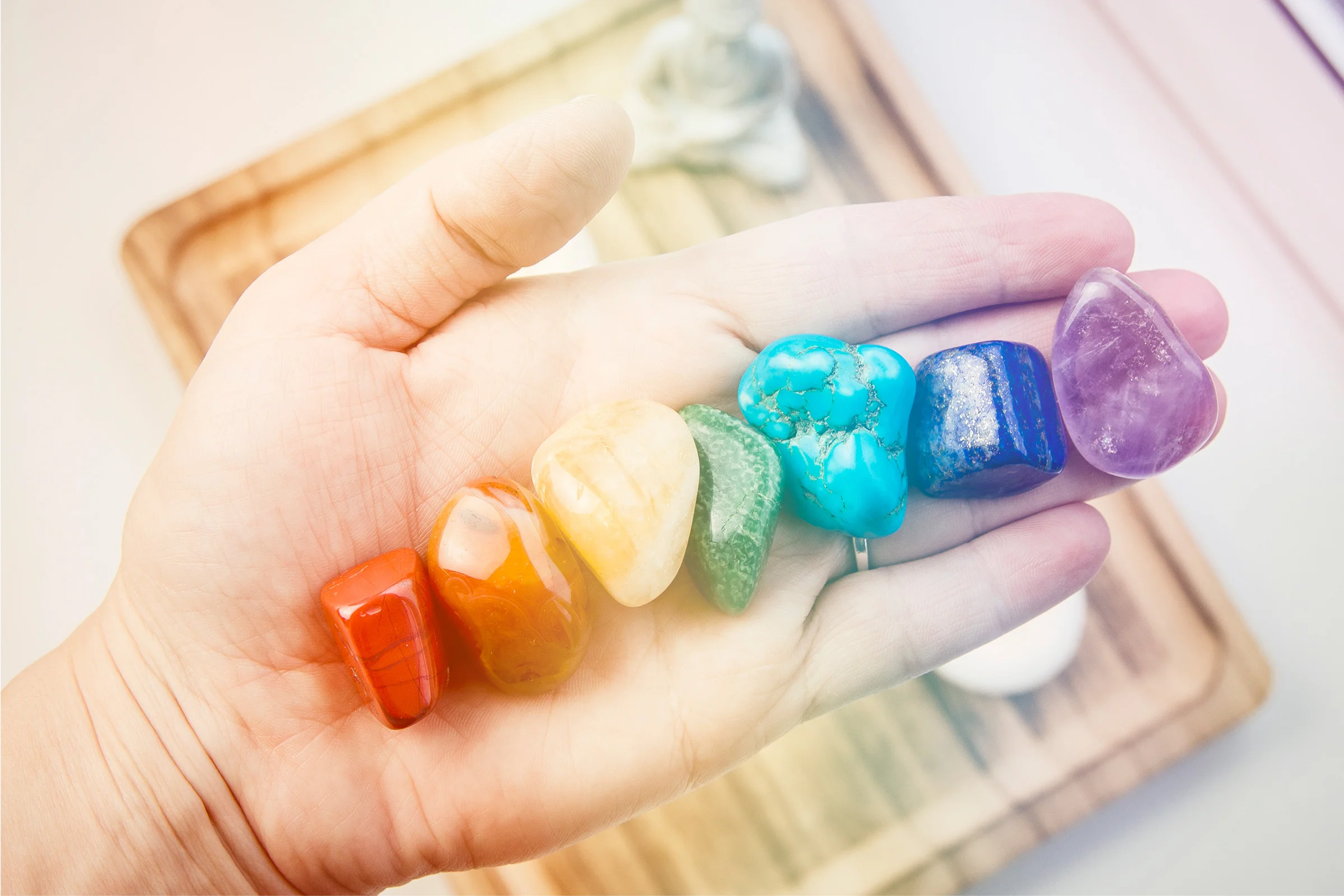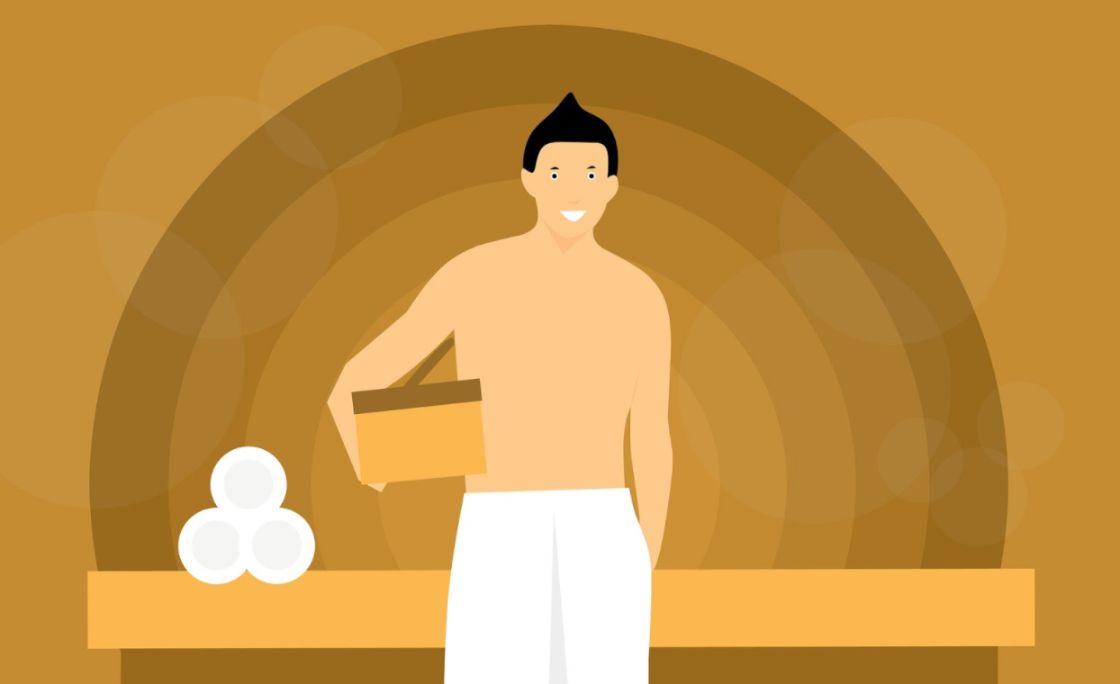As quoted by Poppy Z. Brite “The night is the hardest time to be alive and 4am knows all my secrets!” Insomnia is a sleep disorder/symptom, described as a difficulty in falling asleep (sleep onset insomnia); frequent awakenings once asleep, or trouble getting back to sleep after waking up (sleep-maintenance insomnia); or arousing early in the middle of the night or in the wee hours of morning (early-morning/middle of the night insomnia). In essence, insomnia leaves the sufferer feeling groggy, lethargic, and unable to function adequately, (both physically and mentally) next morning. Is insomnia a problem or a symptom of some problem? It could be both. The possible etiology (reasons) for this sleep ailment could be:
- Transient emotional causes like grief or bereavement
- Anxiety or a state of persistent restlessness
- Mood disorders, such as depression, and mania
- Circadian-rhythm disturbance (a disturbance in the 24-hours sleep-wake up biological body clock, which notifies your body when to sleep and when to rise and shine), hence with a circadian rhythm problem, you want to sleep during daytime and wake up in the evenings. Consequently, this can lead to a conditioned poor sleep and disruption of the sleep cycle, often to the extent that the sleep ritual is totally vanished. There is a nucleus in the hypothalamic part of the brain, named Suprachiasmatic Nucleus (SCN), which controls this biological clock by responding to the dark and light visual stimuli. A hormone called melatonin, secreted by the pineal gland (a small gland at the base of the brain) is also responsible for regulating the normal circadian rhythm and promoting sleep. Subsequently, melatonin deficiency or a defect in the SCN, can upset the normal sleep patterns.
- Pregnancy/menstruation/post-partum blues, due to hormonal variations
- Sleep apnea
- Secondary to hypnotic/sedative medication abuse
- Alcohol or abrupt drug withdrawal
- Thought disorders like Schizophrenia
Natural Insomnia Remedies
Whatever the cause may be, the good news is there are 21 natural remedies available to slay the dragon (insomnia)!
1. Set a Time to Shut off Your Mind
Careless bedtime rituals could be the ultimate contributor to insomnia. Hence, scheduling a proper slumber-time on a daily basis is the first cardinal step to cure insomnia. 8pm means 8pm, so there should be no distractions in your room. Keep away from all forms of lights, including but not limited to, television, mobile phone, laptop, iPad etc. This will prompt the pineal gland that it is time to sleep (as darkness stimulates the secretion of melatonin, whereas light prevents its secretion, thereby bringing on sleep). Espousing good sleep hygiene in your regular schedule will swiftly alleviate insomnia.
2. Shun Tossing and Turning for Long
Ironically speaking,” insomnia hone your mathematical skills because the entire night, you are tossing and turning around in bed, merely computing how many forty winks you will catch if you are able to fall asleep at the moment.” Having said that, if you are unable to drift off to sleep after being in bed for more than 20 minutes, get out of bed, and do something relaxing; like for instance reading a book, or organizing your wardrobe, closet, or anything to keep your mind busy for the moment. Tossing and turning in bed for long will leave you more restless and anxious, aggravating the vicious cycle. At all cost, do not turn on lights, or your phone/laptop.
3. Warm shower
Take a warm shower before heading to bed. Studies demonstrate that the post-shower drop in body temperature elicits a drowsy tranquil feeling, as all the metabolic, digestive, and cardiovascular systems decelerate.
4. Watch out Your Diet before Bedtime
Try to have your dinner at least 2 hours before you intend to hit the bed, so that by the time you are ready to snooze, the digestion process has begin to wind down. Additionally, do not overload your stomach with food. Take a light snack, such as yogurt, sauté olives, avocado, fish, or any other magnesium-rich food. Magnesium aids in calming your nerves and muscles and thereby hastens a person to fall into a deep slumber easily. Not to mention, limiting the consumption of caffeinated and alcohol beverages after noon also aids in attaining a deep slumber early.
5. Conceal Watches/Clocks
Insomniacs eventually develop a habit of checking the time repeatedly, which rather exacerbates the sleep issue. Hence, hide your watches, clocks and phone alarms, or any other diversions or stressful gadgets.
6. Meditation
“WARNING: Meditation yields vigor (Qi in Chinese medicine), sleepiness, and jubilance!” Mindfulness meditation is a splendid natural healer for those who cannot acquire a wink of sleep! To meditate, lie down in bed and close your eyes. Next, imagine a blue light and whilst you breathe in air deeply for a count of four, draw that blue light inside you to every part of the body, revitalizing it, hold your breath for a count of seven, and exhale out all the air, along with the blue light gradually through your mouth for a count of eight. When you are dispelling the blue light, you are dismissing the qualms and edginess from your mind. Keep repeating until you drift off you to your dream world. When we meditate, a mood/sleep-inflating chemical, namely serotonin dispels off from the neurons of the central nervous system. Serotonin influences the sleep and mood in a sanguine way, alleviating the blues and gliding your psyche from a disquietude world to a state of glorious tranquility.
7. Yoga
Yoga, likewise meditation, induces the secretion of a calming inhibitory neurotransmitter from the brain cells called GABA (gamma-amino butyric acid), which functions as a potent mental and muscular relaxant. That is the reason, why various sedative/hypnotic meds manufactured nowadays, modulate the GABA activity to boost up sleep. Not to mention, these naturally gifted therapies also amplify endorphins and substance P, which are the instinctive painkillers and jovial chemical messengers, discharged by your brain and spinal cord. Integrating yoga/mediation in your everyday regimen is akin to “killing two birds (sleeplessness and gloomy mood) with one stone (i.e. mediation/yoga).” One of the most vital yoga poses to rehearse daily for insomnia is as follows: Sit down in a comfortable location and position. With your thumb, lock one of your nostrils, while inhaling air as deeply as you can through the other opened nostril, pause for a while, keeping the retained air in, next lay your forefinger on the other opened nostril to close it, simultaneously removing the thumb from the locked nostril and blowing out all the trapped air. Repeating such yoga and asanas will curb away restiveness.
8. Exercise
Exercising regularly can benefit sleeplessness. According to the researchers of National Sleep Foundation, post-exercise triggers a decline in the body temperature, boosting those ZZZ’s naturally. To boot, exercise has also shown to significantly minimize anxiety and depressive symptoms and boost up the feel-good chemicals like serotonin, endorphins, and adrenaline in the brain, and thereby assist in combating insomnia. However, always remember to work out in the daytime as your mind and body stay hyperactive for a few hours (due to the adrenaline rush), and indubitably, you do not yearn for that while hitting the sack.
9. Nature is the best medicine!
“Green is the prime color of the world and that from which its loveliness arises” (Pedro Calderon de la Barca). Experts recommend investing a bout with verdure and trees, spectacular blossoms, birds chirping, spring water, beaches, and recreational areas; all of which provoke a serene mental frame, perk you up, and can serve as awesome strategies for recuperating from this miserable malady.
10. Aromatherapy
Exhausted of racing thoughts in your mind at night, try putting a drop of essential oil (lavender is tremendously soothing) that will guide you to the state of serenity in a little while. Sometimes, massaging with your favorite oil also facilitates sleep. Alternatively, you can place a diffuser in your room, put the essential oil in it, and take advantage of the enchanting aromatherapy.
11. White-Noise
Various insomniacs encounter noise-sensitivity that can disrupt their sleep or preclude them from falling asleep. Getting a soundproof room might not be favorable for everybody. Therefore, using white noise in the form of machine/mobile app/laptop app is a helpful option. Likewise, earplugs are into the bargain of dealing with this sleep ailment.
12. Tryptophan-Rich Foods
Tryptophan is an essential amino acid that serves as a precursor to serotonin and melatonin in the brain. As aforementioned, serotonin exhilarates the mood and melatonin facilitates sleep. These tryptophan/serotonin-rich foods include (but not limited to) nuts, flaxseeds, fish, wholegrain, brown rice, oatmeal, bananas, cantaloupes, avocados and spirulina, a vegetable that has incredibly abundant amounts of tryptophan.
13. Omega-3
Daily ingestion of omega-3 loaded foods like fish, nuts (especially walnuts), nutty butter (like peanut butter), flax seeds, and avocados augment the appeasing chemical messengers in your head, aiding to keep insomnia at bay.
14. Chamomile Tea
Chamomile tea is a divine herbal cure for insomniacs. Prior to retiring from the day, try enjoying a goblet of warm chamomile tea. Before long, you will discern a pacifying mental effect that will carry you into a trans-phase smoothly.
15. Valerian Root
Valerian is a classic natural herbal sleep remedy employed for decades for treating insomnia. It can be taken in the form of a tea, fluidextract, dry powder extract, or as a tincture. Caution: Some people report paradoxical effects with the herb, thus start at low doses and build up gradually.
16. Lemon Balm
According to a study demonstrated in the Journal of Neuropsychology, lemon balm holds the niches as a mood elevator and sleep inducer. It comprises of rosmarinic acid, which modulates the activity of GABA by inhibiting GABA transaminase (an enzyme responsible for the degradation of GABA); more GABA signifies more sleep. You can obtain this folks medicine herb as an essential oil and apply a few drops on your wrist or consume it in the form of tea. In any way used, it serves as a mild sedative, relaxant, and anxiolytic.
17. Acupressure Therapy
Chinese medicine recommends acupressure therapy for insomnia. The acupressure points for insomnia are a) on the medial side below your anklebone, located on the inside of the heel (the joyful sleep point, K6); and b) on the outside of the leg below the anklebone, located a cm below the lateral malleolus (the calm sleep point B60). Press these two acupressure points simultaneously for a minute or two and then release. Reiterate the maneuver two-three times daily for effectual outcomes.
18. Body Massage
Body massage not only relaxes and calms the painful muscles and trigger points, which insomniacs usually encounter, besides it increases the blood flow to the brain, generating a drowsy feeling. Body kneading is also supposed to stimulate serotonin release from the brain, thereby accentuating deep-stage sleep.
19. Self Hypnosis
Trillions of self-hypnosis apps are accessible these days via iPhone, android phones etc., which are beneficial for healing insomnolence steadily. Correspondingly, you can achieve that self-hypnotic restful mental state via listening to rain forest sounds, beach waves crashing, brown noise, blue noise, or simply by hearing meditation music, deep delta-wave sleep music and so on, and so forth. Everyone have their own preferences to what fits them better in order to attain a sound sleep. Unbelievably, these self-hypnotic techniques will knock one out in a matter of minutes.
20. Jot down your Thoughts onto a Paper
When your mind is racing, venting out your notions on a piece of paper helps easing the flight of ideas.
21. Create a Cozy Bedroom Environment
Decorate your bedroom like a place that allures your eyes. It should be cool, airy, bluish, hubbub-and-distractions free. Utilize your bedroom only for sleep.
Conclusion
Concisely, health is a state of complete physical, mental, and spiritual harmony. Do not succumb yourself to sedative meds/drugs, because these are only effective in the shot-term. Prolong use of these medications will trigger a vicious cycle, dependency and tolerance, altogether which are detrimental to one’s wellbeing. In lieu of these energy-sucking pills, eradicate sleeplessness from the root by implementing these natural remedies on a day-to-day basis. Soon you will be sleeping like a baby! Happy sleeping to all those afflicted with insomnia!









